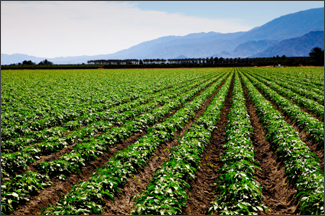
Northern Ireland has just banned the growing of genetically modified (GM) crops.
Mark H Durkan, Stormont’s environment minister, said that he was “unconvinced of the advantages” of GM crops, adding that his decision would be in effect for the “foreseeable future”.
Earlier this year the European Union said that its member states could make their own decisions on the issue. Each regional assembly within the UK is making their own.
Scotland already banned GM crops in August and Wales says that it is maintaining “a restrictive and precautionary approach to GM crop cultivation”.
GM crops are not grown commercially across Britain. However, there are imported GM commodities used for animal feed and in food products.
According to Durkan, the small size of farms in Northern Ireland could result in “potential difficulties if we were to seek to keep GM and non-GM crops separate”.
The costs associated with dividing GM from non-GM would be impractical and expensive.
He said: “Further, we are rightly proud of our natural environment and rich biodiversity,”
“We are perceived internationally to have a clean and green image. I am concerned that the growing of GM crops, which I acknowledge is controversial, could potentially damage that image.”
England said it will allow GM crops to be planted and marketed if a “robust risk assessment indicates that it is safe for people and the environment”.
The world’s main producers of GM crops are the USA, Argentina, and Brazil. The most common GM crops are maize and soya. There are currently eighteen million farmers across 28 nations growing GM crops on 181 million hectares.

